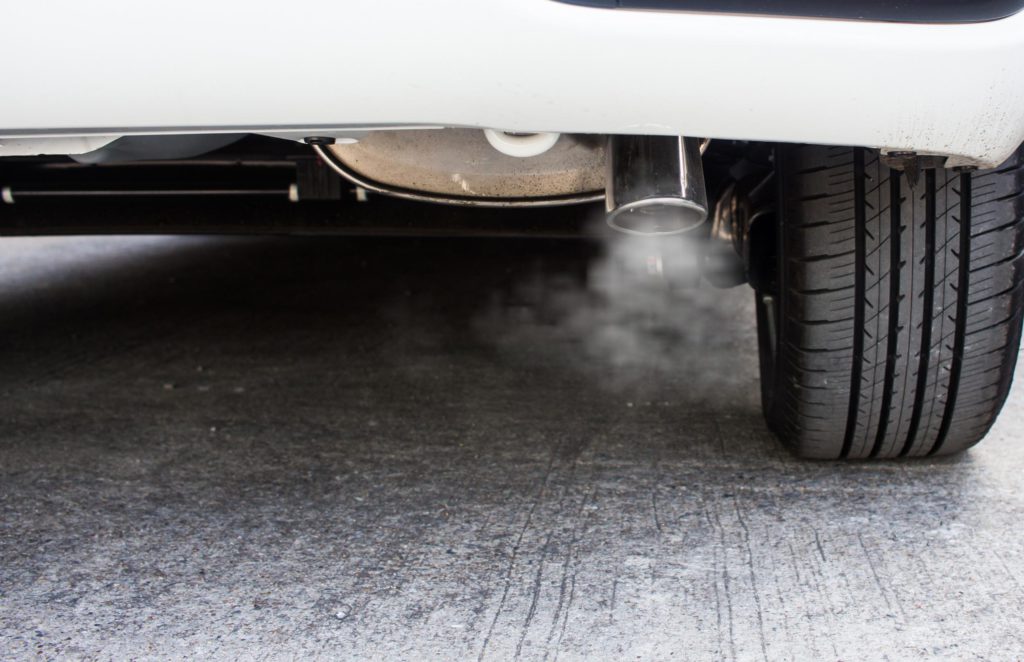UK clean air strategy gains mixed response over effectiveness
08 May 2017

08 May 2017
The UK Government launched its Clean Air Strategy on 5 May 2017, following a failed attempt to postpone its publication until after the 2017 general election. This followed a period where towns and cities in the country exceeded air pollution targets, some going above annual projections in a matter of months.
The plans include a targeted scrappage scheme for pre-Euro 6 diesel and pre-Euro 4 petrol cars, offering drivers money to switch to electric vehicles and therefore remove around 15,000 of the most polluting vehicles from the country’s roads.
In addition to this, local measures are also outlined in the proposals which are now at the consultation stage. These include the removal of speed bumps that cause inefficient stop-start driving, as well as improvements in the infrastructure of towns and cities to boost walking, cycling and electric vehicles. There are also plans to retrofit trucks, buses and taxis, which are all major sources of NOx pollution.
There has been a lot of reaction to the consultation, some welcoming it while others have been stating it does not go far enough.
Jeremy Hicks, Jaguar Land Rover UK managing director, comments: ′We welcome the consultation recognising the fundamental difference between older vehicles which contribute to air pollution and clean, new diesels which are part of the air quality solution. Pollutant emission levels for new diesels are comparable to the equivalent petrol engines, but with CO2 emissions that are around 20% lower. Our customers demand greater fuel economy all the time, and new diesels deliver that. Customers can be reassured that Jaguar Land Rover is continuing to invest in cleaner technology, with £1 billion (€1.2 billion) invested at our Engine Manufacturing Centre near Wolverhampton, as well as a major hybrid and electrification program.
′Older car engines are just one potential source of urban air pollutants, and we’d be keen to see the strategy tackling air quality across a range of pollution sources including heating, public transport and shipping.’
The British Vehicle Rental and Leasing Association (BVRLA) Chief Executive Gerry Keaney adds: ″We understand the need to address air pollution in the UK, which requires a change in the way we travel and the vehicles we use. While we broadly welcome the government’s revised air quality plan – and we look forward to responding to the DEFRA consultation – the automotive industry urgently needs detail on the incentives that are available, not another period of consultation.
′It is disappointing that the government is still consulting on a scrappage scheme, rather than publishing detail about what incentives drivers of older diesel vehicles will be given, and when the scheme will come into effect. We believe a national scrappage scheme could make a significant contribution in reducing NOx emissions by removing some of the oldest, most polluting cars and vans from our roads.’
One area of the industry that will be affected, especially by the proposed ′clean air zones’, is haulage. Richard Burnett, chief executive of the Road Haulage Association (RHA) comments: ″While local authorities have been ordered to implement Clean Air Zones across the country, there is still a failure to commit to tackle the local congestion and traffic management issues that underpin the problem locally. Local authorities that a have been given the responsibility to implement this, they need to focus on hot spots, especially where buses and taxis get stuck in jams.
′The report indicates that applying the scrappage scheme to all pre-Euro 6 diesel cars and vans in the UK in 2019 could cost the government £60 billion (€71 billion). With the price of a new, Euro-6 HGV costing upwards of £80,000 (€94,000), the same scheme cannot realistically, be applied to road haulage operators; the industry sector responsible for the movement of 85% of the UK economy.’
Finally, Gary Rae, campaigns director for Brake, the road safety and sustainable transport charity, concludes: ′These proposals had to be dragged out of the government, who fought against it in the courts, and lost. We will study the details in the plan, but the headlines give us cause for concern. It appears the government has abdicated responsibility for reducing air pollution to local authorities. If any issue needs tackling on a national – and international – level, it’s this one. We have a national health emergency, and the government is kicking the issue into the long grass.
′The idea that removing speed bumps on local roads will somehow reduce air pollution is both cynical and misguided. Most of the pollution comes from vehicles travelling on major routes, in big urban conurbations. Speed bumps are a red herring and the government knows it.’